The Joy of Starter Kits, Part One
The Dungeons & Dragons Basic Set (TSR, 1977). Cover by David C. Sutherland III
There’s lot of ways to get into role playing these days. But recently the industry has embraced the Starter Kit (sometimes called the Beginner Box, Essentials Kit, Beginner Game, or something similar) in a big way.
They all have their roots in the Dungeons & Dragons Basic Set, the granddaddy of all Beginner Boxes, created by J. Eric Holmes and based on Gary Gygax and Dave Arneson’s original boxed set from 1974. The D&D Basic Set was first published by TSR in 1977. It was the way I learned how to role play, and I wasn’t alone — the D&D Basic Set sold hundreds of thousands of copies in the late seventies, and was so successful it was constantly updated and kept in print by TSR, with revisions in 1981, 1983, 1991, and later.
Gygax’s masterpiece, the Advanced Dungeons and Dragons Players Handbook, was released in June 1978, and was the gateway into role playing for millions of young gamers. Not me, though. That damn thing was a 128-page hardcover, and you needed the Monster Manual and Dungeon Masters Guide just to use it. By contrast, the Basic Set had a slender 48-page rulebook and everything you needed to start playing immediately. That’s right, everything, including dice, a pad of sample maps (“Dungeon Geomorphs), and an introductory adventure we played through at least a half dozen times. I didn’t have anyone to teach me how to role play, but with simple, clear instructions Holmes taught me everything I needed to become an enthusiastic Dungeon Master for my brother and our friends.
At long last the industry is rediscovering the power of Starter Kits to attract and educate new players. The best ones are cheap, easy to learn, and packed with goodies. In just the last few years there have been beginner boxes released for Call of Cthulhu, Pathfinder, Starfinder, Battletech, Dungeons & Dragons, Star Wars, Traveller, Shadowrun, and many others. They haven’t all been well promoted, however, and many gamers who could be taking advantage of an inexpensive entryway into a new gaming obsession are unaware they even exist. Let’s see if we can fix that with a look at a dozen of my recent favorites.
[Click on the boxes for non-starter-sized images.]
The industry’s recent fascination with Starter Kits can be traced back to 2011, and the breakout success of the Pathfinder Beginner Box, written by Jason Bulmahn. This thing was everything a beginner box should be — big, beautiful, and a fantastic value.
It was a major success for Paizo, and introduced thousands of new players to their new flagship RPG, which was barely two years old in 2011. In his review at Black Gate, Scott Taylor said it brought back fond memories of the D&D Basic Sets, as it was no doubt intended to.
Really, when was the last time a gaming box hit the market? I’d say sometime around 1995 as the death-throes of TSR were beginning in Lake Geneva…
I finally received my copy of the Pathfinder Beginner Box. Holding it, I noted how thick it was, how heavy, and when I shook it much like a gift at Christmas it sounded of cardboard, bound books, and dice… ah the sound!… Yep, there it was; the absolute flash of everything good in my 12 year-old self coming back with the smell of fresh paper and stale air. Paizo had done it… put me upon the event horizon of absolute adventure….
Paizo spared no expense here bringing the player full renderings of characters, classes, and my personal favorite weapons, armor, and equipment. If you had a question about something inside the box, there was a full description and picture, which I find totally off the chart to begin any gaming experience. A player, or even Game Master, can settle in with the first of two small books that first depict what an RPG is, the Hero’s Handbook. This fine 64 page manual takes you through a base solo adventure scenario before character building occurs…
Yep, this is what gaming is about, and if you haven’t, or even have, tried Pathfinder before, this is still a must own.
Designed for the original version of Pathfinder, with the August release of Pathfinder Second Edition the Beginner set is now obsolete, or at least obselete-ish. It was out of print for much of the fall and I assumed Paizo had retired it, but it’s now available again, at least temporarily. If you’re interested (and you should be), I would move quickly to secure a copy. It retails for $39.99; I bought a new copy from a third-party Amazon seller last month for $29.
Our recent Pathfinder coverage includes:
Exploring Pathfinder‘s Age of Lost Omens, by Andrew Zimmerman Jones
Pathfinder Second Edition, by Andrew Zimmerman Jones
Pathfinder Playtest Update, by Andrew Zimmerman Jones
Pathfinder Planar Adventures, by Andrew Zimmerman Jones
Origins Game Fair: Pathfinder Society Organized Play, by Andrew Zimmerman Jones
Old School Role Playing, and Pathfinder by the Pound: Gary Con 2018 Report, by John O’Neill
Picking Pathfinder by Bob Byrne
See all of our recent Pathfinder coverage here.
The Starfinder Beginner Box from Paizo (2019)
Paizo’s Pathfinder Beginner Box surprised the industry, but the Starfinder Beginner Box was a no-brainer. It arrived this year, and at $39.99 it’s a terrific value, especially since it’s another heavy box that comes crammed with content.
Andrew Zimmerman Jones was the first one to tip me off about the existence of the Starfinder Box, in his April 2019 Starfinder Update at Black Gate.
Starfinder has all the magic and adventure of Pathfinder, co-mingled with high technology and a wild space setting. The best way to describe the feel of the adventures is a mix of Dungeons & Dragons with Guardians of the Galaxy….
The setting focuses on the solar system that once housed the planet of Golarion, the main Pathfinder setting, but Golarion itself no longer exists. In its place is Absalom Station, a giant space station that houses the Soulstone and is a hub of travel for shifts traveling through the Drift, the mysterious dimension that allows for rapid travel across vast distances of space. Among many other things, Absalom Station is the headquarters of the Starfinder Society, a group of explorers and adventurers who travel throughout the Pact Worlds and beyond into the Vast to discover new worlds and civilizations, occasionally running afoul of the undead Corpse Fleet or other threats, from space pirates to alien menaces like the vicious Swarm.
For those who haven’t yet explored the setting, and are looking for a guided introduction, the new Starfinder Beginner Box offers a great springboard to get into the game. It comes with a streamlined rule set, some cards that help provide rule and condition reminders, pregenerated characters, a variety of cardboard pawns representing characters and creatures, a gridded map for play, and an introductory adventure module…
Whether you’re an established Starfinder, or just looking at joining the Pact Worlds universe … just watch out for the Corpse Fleet and space pirates out there. I look forward to crossing your path in the Drift.
The key draw of Starfinder for me is the setting (Corpse Fleet? Space Pirates? Yes, please!), and the Beginner Box has been a great way to sample it. It’s still in print; get complete details here.
Our previous coverage of Starfinder includes:
Starfinder Update: Space Fantasy in the Future of Pathfinder by Andrew Zimmerman Jones
Lock and Load with Starfinder Armory … And Beyond by Andrew Zimmerman Jones
Explore Starfinder’s Pact Worlds by Andrew Zimmerman Jones
Dead Suns Adventure Path for Starfinder by Andrew Zimmerman Jones
Starfinder Alien Archive — Clark Ashton Smith meets Douglas Adams (with visuals by Ray Harryhausen) by M Harold Page
Starfinder Under the Hood – Character Creation by Andrew Zimmerman Jones
A First Look at Starfinder 1: “OMG! All Your Trope Are Belong To Us” by M Harold Page
Our complete Starfinder coverage is here.
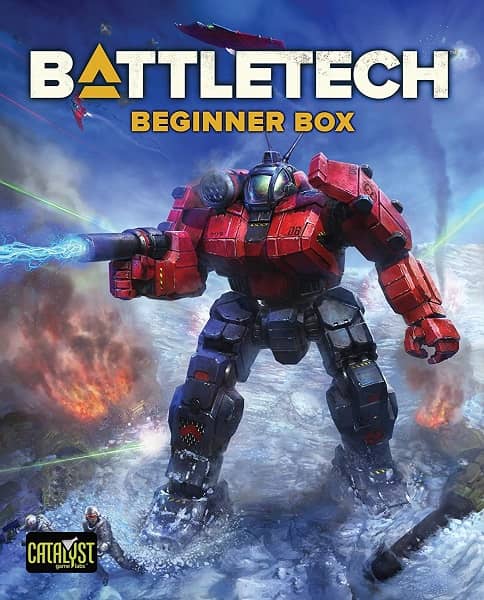 |
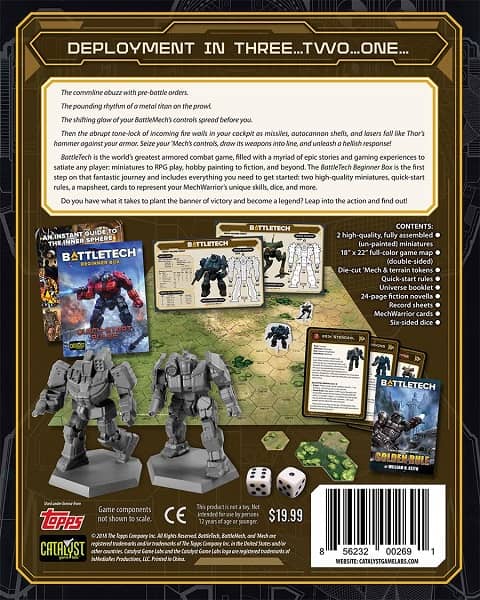 |
Catalyst relaunched FASA’s storied Battletech game in 2007, and earlier this year it simultaneously published two introductory boxes, including a $19.99 Beginner Box. Charlie Hall compared them at Polygon.
Now that things have been sorted there are two new starter sets going up for sale on Catalyst’s website. BattleTech: Beginner Box is a steal at just $19.99, while BattleTech: A Game of Armored Combat is a more full-fledged starter set at $59.99. Both go on sale Jan. 23.
If you’re interested in getting back into the hobby, or just want to indoctrinate some young MechWarriors in your household, now is a great time to get back into the cockpit.
I’ve had preview copies of both new sets for a few weeks now. While the Beginner Box is certainly the more affordable of the two, I recommend picking up A Game of Armored Combat instead. Not only does it include eight of the new plastic miniatures versus just two in the Beginner Box, it also includes a complete, 56-page rulebook. You even get a set of black-and-white technical readouts suitable for photocopying. No messing around with dry-erase markers or grease pencils here.
The real gems here, however, are the miniatures themselves. For years it seems like the sculpts for the BattleTech tabletop games have lagged behind the rest of the hobby games industry. While products like Kingdom Death: Monster and even Games Workshop’s Warhammer 40,000 have opted for larger, more dynamic figures, BattleTech minis always seemed a bit skinny and wooden. All of that changes with the two new starter sets, which include energetic poses that will stand out on your table.
I’ve been a huge Battletech fan since I played Infocom’s classic computer game Battletech: The Crescent Hawk’s Inception in the late 80s, and I snapped up a copy of the Beginner Box as soon as it was available. I’m tempted to try out the Game of Armored Combat as well, but one step at a time.
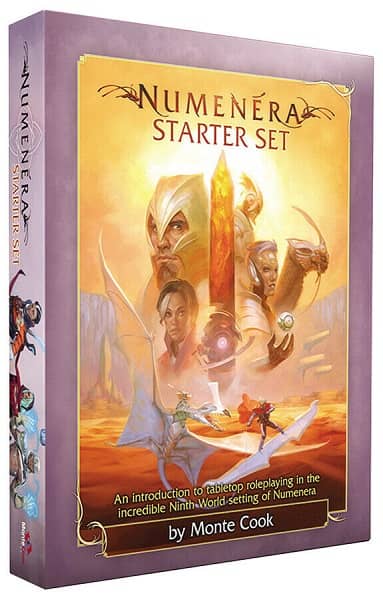 |
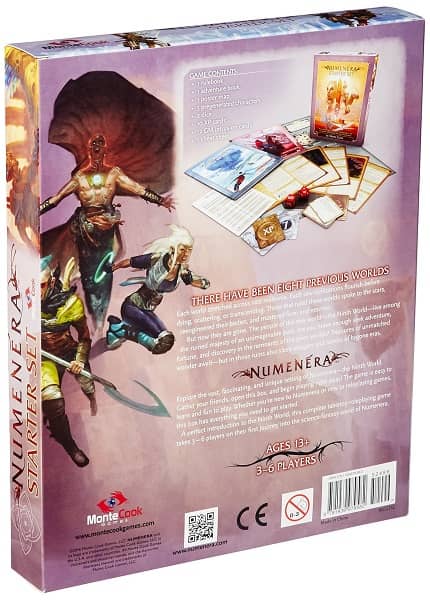 |
Numenera Starter Set by Monte Cook (Monte Cook Games, 2016)
I’ve spent more money on Numenera in the last year than any any other role playing game (which is saying something).
I’ve been interested ever since Monte Cook wrote a post about it at Black Gate back in 2020. Numenera has the most interesting and original setting of any RPG I’ve ever encountered, and the sourcebooks are a joy to read. In just the last few months I’ve purchased Into the Deep (an underwater adventure supplement), Into the Night (outer space adventures), The Ninth World Bestiary (monsters!), and Numenera Discovery (I dunno what it is, but it was on sale and it looked cool).
I’ve never actually played though (other than the Torment: Tides of Numenera video game, which doesn’t really count), so I like the idea of an ease-you-in-gently Starter Set. Monte Cook Games published one in 2016; priced at $24.99, it comes with three softcover booklets, dice, cards, and a lot of supplemental material.
Our prior coverage of Monte’s Numenera game includes:
The Numenera Roleplaying Game by Monte Cook (2012)
Torment: Tides of Numenera Breaks Kickstarter Records (2013)
Catching Up With Numenera (2015)
Numenera, Nyarlathotep, and Runequest Glorantha: Some Recent Slipcase Sets (2019)
The Starter Set is a great place to start exploring the fascinating setting of the Ninth World, if you haven’t already.
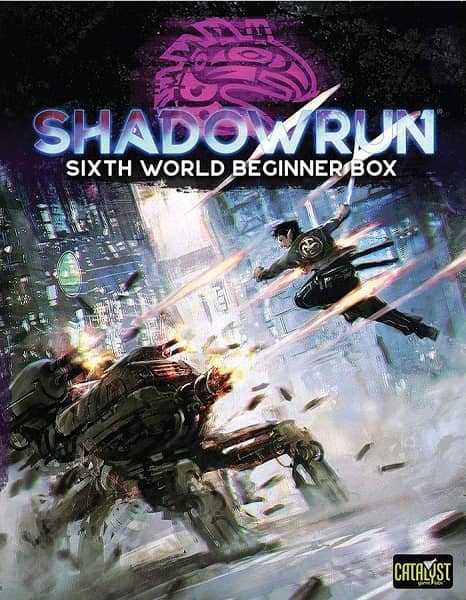 |
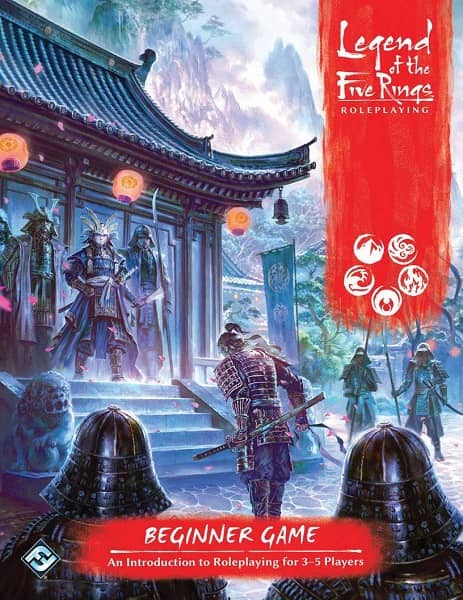 |
Shadowrun Sixth World Beginner Box and the Legend of the Five Rings Beginner Game
I love the world of Shadowrun. Set in the same world as Earthdawn, though millennia later (which was a clever way to re-purpose all those obsolete Earthdawn supplements when that game died in 1999), to my mind Shadowrun is one of the very few successful near-future science fantasy games. It is nominally set in 2081 AD, after magic (and all the strange creatures that come with it) has returned to our world.
It was created by Jordan Weisman, Robert N. Charrette, and a cast of thousands at FASA in 1989, and was popular enough to survive the death of its parent company in 2001. Wikipedia lists a whopping six editions of Shadowrun over the past 30 years:, from three different publishers:
1989 — First Edition (FASA)
1992 — Second Edition (FASA)
1998 — Third Edition (FASA)
2005 — Fourth Edition (FANPRO)
2009 — 20th Anniversary (Catalyst)
2013 — Fifth Edition (Catalyst)
2019 — Sixth Edition (Catalyst)
That’s more editions than Dungeons & Dragons has had.
Anyway, it was tough to know which edition to start with. At least until Catalyst published the Shadowrun Sixth World Beginner Box earlier this year. It retails for $33.99, and makes a great entry into this classic cyberpunk adventure game.
Legend of the Five Rings is another storied RPG to benefit from a value-price Beginner Game. It was published by Fantasy Flight in April of last year and retails for $39.95.
In Part Two of this article, we look at recent Starter Sets for Call of Cthulhu, Traveller, Star Wars, Star Trek Adventures, Warhammer, and Dungeons & Dragons.
Keep your dice warm, and check out all our recent Games article here.
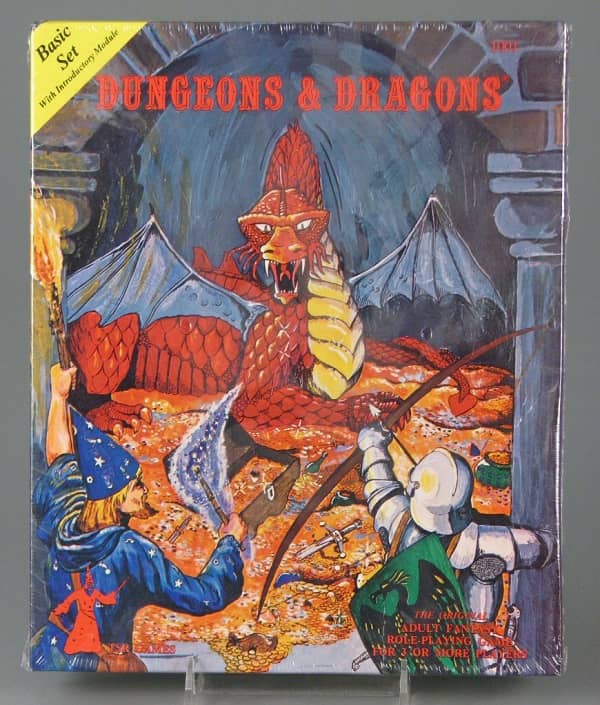
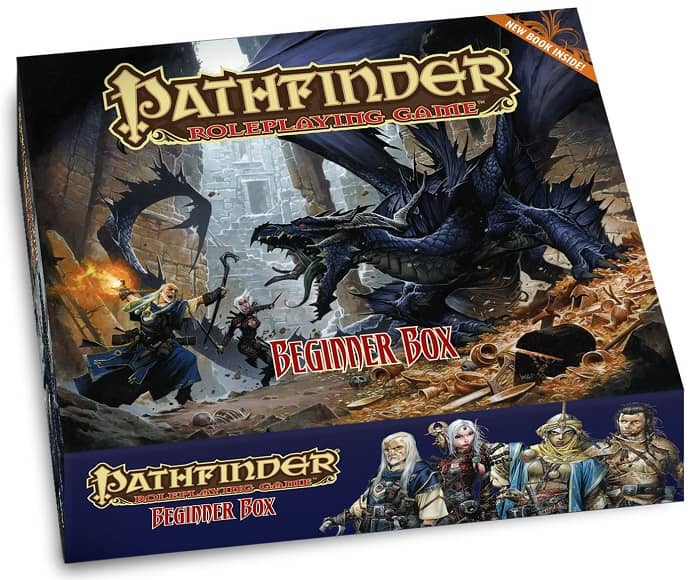
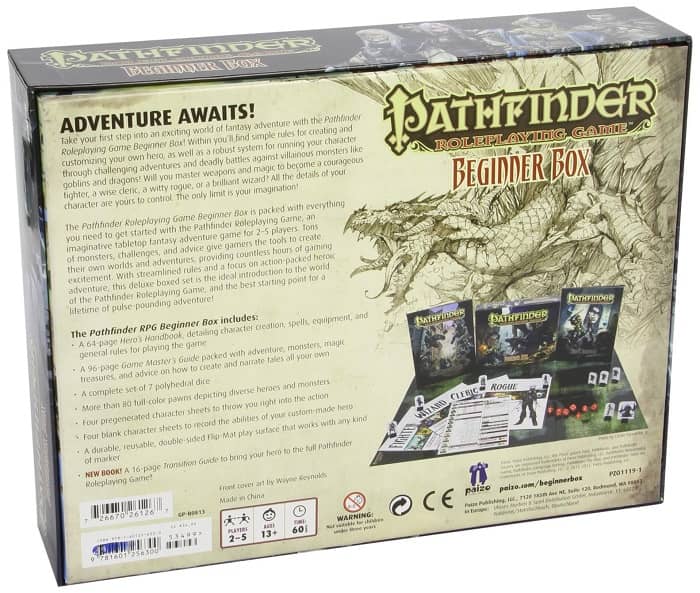
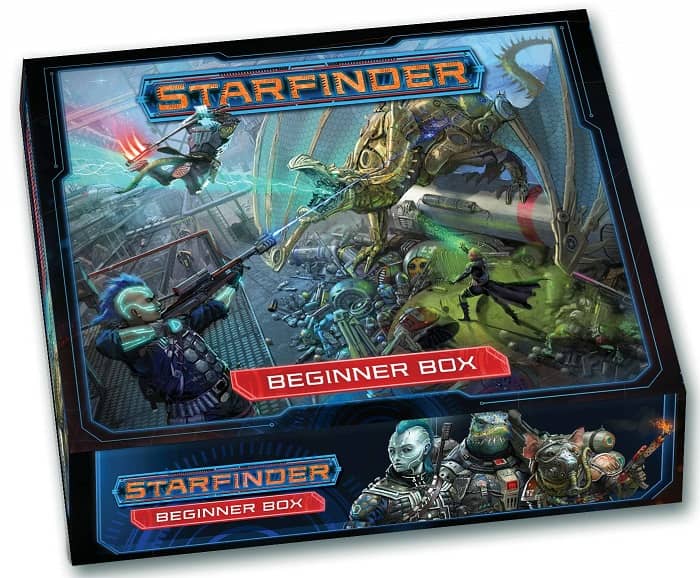
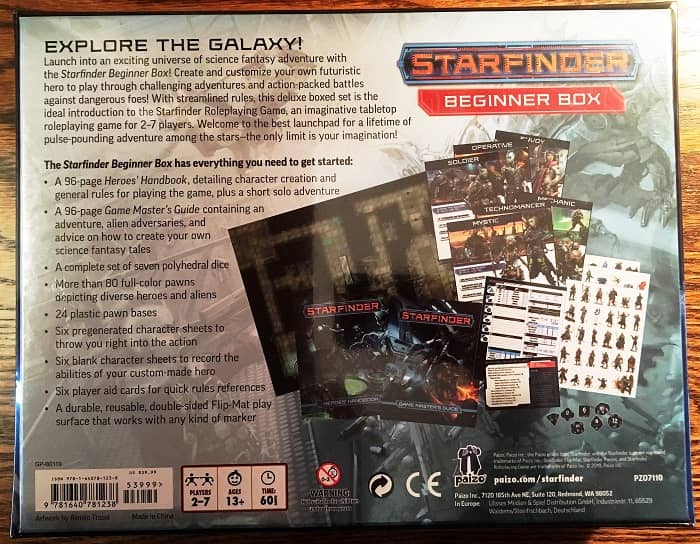
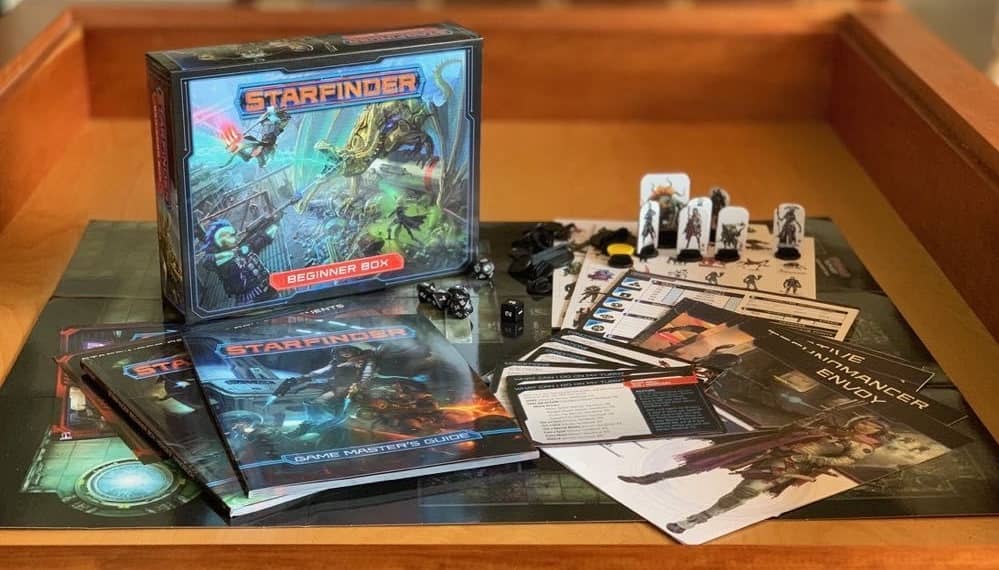
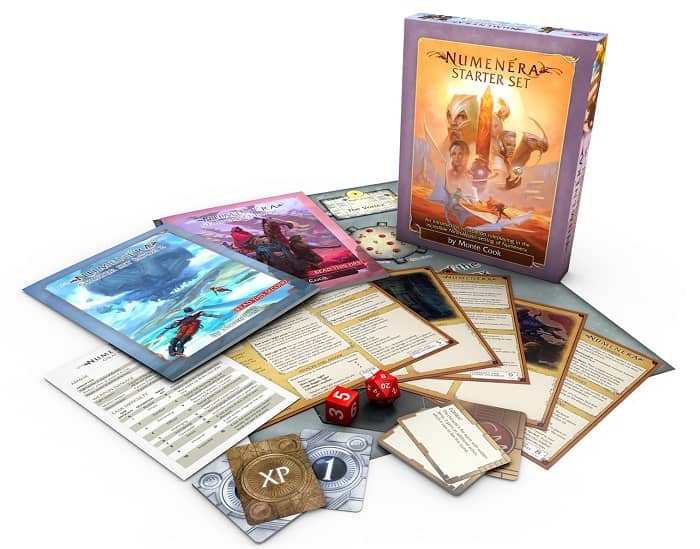
That Holmes set was my first — specifically, whichever printing it was that included B2 (not B1), and which included cardboard chits rather than dice because they couldn’t produce enough dice to keep up with demand.
But it all worked out — it was a Christmas present, and because my parents saw that it didn’t include any dice, they also got me an entirely different game that DID have a full set of dice in it: Gamma World 1e, which set I still have, although my Holmes box is long gone.
They’ve released at least two different 5e starter sets as well — the Starter set and the Essentials set.
I bought that first Gamma World box too!
I’ll be covered the D&D Starter set and Essentials set in Part II. Stay tuned!
Always!
the newest D&D essentials set is SO GOOD.
i wish i had gotten that old starter set, but my first box was the iconic red box. Star Frontiers, i dont know if it was a starter box, but i remember a box we got with maps and the rules we messed around with a lot. i miss playing TRPG’s a lot…
i am thankful the battletech PC game is so good, otherwise i would have dropped even more money on that box, man i loved crafting mechs and battling it out back in the day.
I keep wishing that in this day of fancy print-on-demand technology somebody could start making actual full reprints of boxed sets (with the box, the 22″x34″ folded map and the cardstock inserts), even for a premium.
I’ll save my comments on the 5th edition starter set for part 2. But I’ve been using it and the essentials kit with great success.
> i wish i had gotten that old starter set, but my first box was the iconic red box.
Dante,
The red box! You mean this one? (I can see we’re going to need pictures so younger gamers in the audience can follow long.)
I always think of that one as the Red Box because the cover of the rulebook was red. It was the Second Edition of the Basic Set, written by Tom Moldvay and published by TSR in 1981 with an awesome Erol Otus cover.
But I’m going to guess you mean the Frank Mentzer Third Edition set from 1983.
>i am thankful the battletech PC game is so good, otherwise i would have dropped even
> more money on that box, man i loved crafting mechs and battling it out back in the day.
You’re not the only one! Have you tried the new Battletech game from Paradox Interactive? I’ve put many hours into it on GOG.
> I keep wishing that in this day of fancy print-on-demand technology somebody could start making actual full reprints of boxed sets
Joe,
That seems like such a reasonable thing to ask. My understanding is that boxed set are very expensive to print and assemble, however. It was the reason the entire industry moved away from them in the late 90s in favor of hardcover game books.
Mr. ONeill
i do in fact mean the Frank Mentzer Third Edition set from 1983.
i was also referring to that exact battletech game, it has a lot of great features, and i get hte same thrill as i did when younger and paying the mini’s game.
i await your Part 2!
as a side not, i love the tiny typo about when monte cook wrote the article (2020) considering the setting of numenera hahaha. i have to agree the very thought of millions of years in the future being a setting is just so fantastical, my only gripe is that i am not as much into the system (though the video game i enjoyed quite a bit). the great thing about the books for numenera is they are so rich in lore and ideas they can be easily transferred to a system you do enjoy playing in.
Not just in English either. There are some pretty sweet French starter sets, and I seem to remember Der Schwarze Auge had one in German too.
So there’s Tiny, https://www.philibertnet.com/fr/initiation-au-jeu-de-role/80079-tiny-boite-d-initiation-9791094445419.html, Chroniques Oubliés, https://www.philibertnet.com/fr/initiation-au-jeu-de-role/54538-chroniques-oubliees-boite-d-initiation-3760245550377.html, and even one from Larousse, a major mainstream publisher, https://www.editions-larousse.fr/livre/soiree-jeu-de-role-9782035946034. And of course, this old thing from the French Roleplaying Federation: http://www.ffjdr.org/manuel-pratique-du-jeu-de-role/
Just only starter box sets, I miss box sets in general. Still got my original “World of Greyhawk” and “Star Frontiers” box sets and love them to this day. There are still occasionally a few box sets around today, such as the “Car Wars” set I picked up at Origins in 2018, but they don’t seem as common as they once were. I also miss the mini games, “Revolt on Antares” still being a favorite.
> I’ll save my comments on the 5th edition starter set for part 2. But I’ve been using it and the essentials kit with great success.
Glenn,
Part Two is now live here:
https://www.blackgate.com/2020/01/04/the-joy-of-starter-kits-part-ii/
You’ve used both the Starter Kit and the Essentials Kit? I’m curious to know… is there any value to having both?
> i love the tiny typo about when monte cook wrote the article (2020) considering the setting of numenera hahaha.
Dante,
Ha! Yes, I meant 2012. Monte wrote that article for us years ago, when the original Numenera Kickstarter was still underway. It was a legendary success, in no small part due to Monte’s tireless promotion.
> the great thing about the books for numenera is they are so rich in lore and
> ideas they can be easily transferred to a system you do enjoy playing in.
I agree absolutely. I don’t play Numenera, but I’ve purchased half a dozen of the gamebooks for just that reason. I find it one of the most (if not the most) creative games on the market, and the books make fascinating reading.
> There are some pretty sweet French starter sets, and I seem to remember Der Schwarze Auge had one in German too.
gbsteve,
Wow! I had no idea those existed. Thanks for the links. I love the look of Tiny.
I wish Der Schwarze Auge (The Dark Eye in English) had an English box set. I bought the original English version back in the day.
> Just only starter box sets, I miss box sets in general. Still got my original “World of Greyhawk”
> and “Star Frontiers” box sets and love them to this day.
Ty,
I know what you mean! I loved the early gaming boxed sets. The TSR sets (especially the ones in the 90s like Menzoberranzan and Dragon Mountain, just to mention two of my favorites) came packed with numerous gorgeous fold-out maps, handouts, and other goodies.
Starting in the early ’00s the industry moved away from boxed sets. They became more expensive to produce, and the conventional wisdom was that players wanted to be able to flip through the books and see what they were getting, hence the move to self-contained hardcovers instead.
Still, I dearly miss the boxed sets. Now that gaming hardcovers typically retail for $50, I suppose box sets are more price competitive again, which is why they’re returning to the market.
> I also miss the mini games, “Revolt on Antares” still being a favorite.
Oh, absolutely! I played the hell out of Ogre, Car Wars, and especially Melee and Wizard.
Did you ever play any of the other TSR minigames, like Vampyre or Saga?
I loved the maps for those games. Vampyre was probably my favorite (click the image for a bigger version.)
The amazing thing for me is how much these old minigames have skyrocketed in price. They originally retailed for $3 in 1981. Sellers are asking $75 – $100 and up for some of them, especially the ones in the original packaging.
https://www.ebay.com/sch/i.html?_from=R40&_trksid=p2060353.m570.l1312.R1.TR11.TRC2.A0.H0.XTSR+.TRS1&_nkw=tsr+minigame&_sacat=0